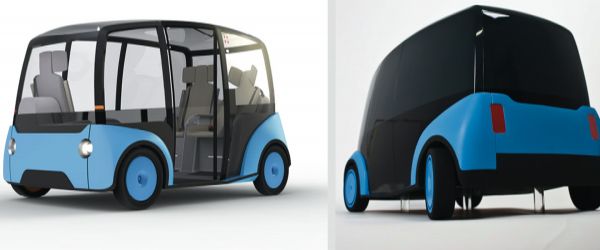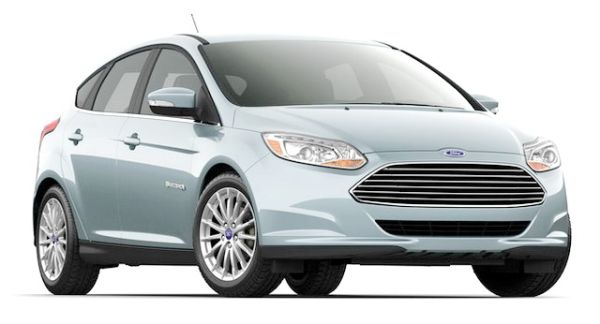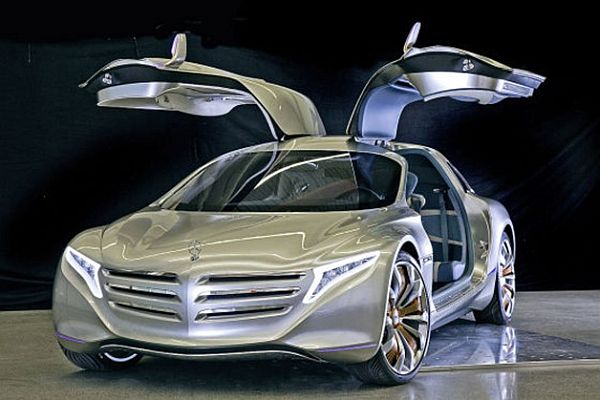
The ever thriving automotive industry has time and again associated with the wondrous phrase of sustainability. But what does the expansive scope of sustainability really stand for? Quite simply put, it implies the meeting of our present needs, without compromising the capability of future generations (to meet their need). In relation to this, there have been some innovative yet credible automotive conceptions that uphold the dictum and ambit of sustainability. One such design concept is the Meek: a self steering, electric powered taxi that would cater to customers in the futuristic year of 2022.
Developed by a design team of Jacob Haim, Nils Kramer and Matthews Wagner, the Meek conception has been envisaged as a comprehensive eco friendly system that would be conducive to urban traffic. According to the designers, most of the current self steering vehicle technologies deal with the intrinsic essence of car mechanism rather than the more important component of passengers. But their conceptualization will come as a righteous solution to passenger related predicaments (along with their overall environmental effects). The tackling of the issues will be done through various factors like minimizing traffic jams, preventing accidents and maintaining the comfort level of the passengers. But most importantly, the system will thrive to provide efficient and cost effective transportation with an fervently eco conscious vibe.
The designers have based the fuel economy, ergonomics and emission features of Meek on the existing cramped conditions found in densely populated areas of mega cities and conglomerations around Asia, Europe and North America. In regard to this, the taxi will have a capacity for four people. Coming to its vehicular specifications, the dimensions of the spatially deft chassis will be 3m (length) x 1.7m (width) x 1.8m (height), with a total weight of just 1200kg. As for its low emission drive train, the taxi will be powered by a 36 kW electric engine and wheel hub motors, complimented by a sturdy 120kg battery pack (that can be charged from a rear power output). The maneuvering capacity will be dictated by a compact body with rear wheel steering mechanism. More importantly, from the perspective of fuel efficiency, the car will have a substantial range of around 180 km on a single charge.
Now, coming to the spatial attributes, Meek will have a myriad of adjustments catering to the optimized comfort of its passengers. In the concept illustrations, we can see the minimalistic visual appeal is accentuated by a sober yet hardy aluminum frame glass (as a roofing structure). The seats are to be ergonomically placed, with a scope for additional seating area (in case of requirement). And with a sense of allusion to the contentment of the passengers, the designers have also thought of efficacious accessibility, which would also cater to wheel chair bound people.
Finally, the system as a whole is envisaged as a collective solution to public transportation. This means the Meek can be easily called by smartphones, by entering the destination and paying the account. The vehicle can also receive a sharing request from another person, if his/her destination lies in the same route. Now, if this passenger is chosen, the trip becomes more cost effective for all of the passengers on board. This adroitly comprehensive approach will make the taxi more affordable as well as sustainable in the long run.
Source: Coroflot




